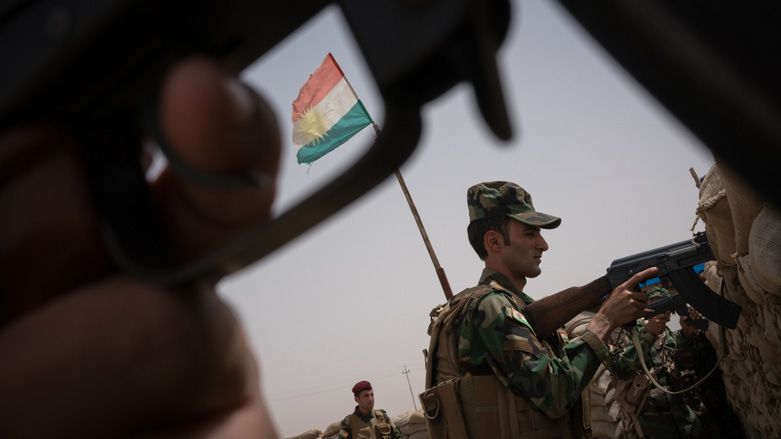Top counter-terrorism official says joint Kirkuk administration necessary for stability

ERBIL (Kurdistan 24) – Lt. Gen. Michael K. Nagata, Director of Strategic Operational Planning at the National Counterterrorism Center, on Tuesday, at The Washington Institute for Near East Policy, said that it is necessary to form a joint administration in Kirkuk between Erbil and Baghdad to prevent a return of the Islamic State (IS.)
The senior US Army officer explained that the disputed city of Kirkuk will be a test case for the new Iraqi government, once it is fully formed. Negotiations remain ongoing in Baghdad to form a new government, following the May 12 elections.
“Obviously [the Iraqi parliamentary] elections only recently happened. I don’t think we have yet a final form for the new government. But once it is in place, Kirkuk will be an early test case for the new government,” Nagata said.
“As you know very well, both the Kurds in the north, as the central government in Baghdad, have interests in Kirkuk,” he said. “I think the best people on both sides, are trying to find a path towards some kind of joint administration for Kirkuk.”
“I have heard people on both sides caution Americans and other coalition members that there is significant peril for the entire country, if that joint administration agreement is not reached, and I agree with them,” Nagata continued.
“But none of this is possible until the new government in Baghdad is fully formed. This is a story that is yet to be written. But some reasonable and mutually acceptable joint administration in Kirkuk, will send—if it is created—a very important signal across both the country and the region, that if we are to prevent a return of (IS), or something like it, there has to be a different political outcome in this part of the world, than we had previously,” he concluded.

Iraqi forces, along with Iranian-backed Shi’ite militias, known as the Popular Mobilization Forces (PMF), attacked Kirkuk and other disputed territories last October, in a military operation engineered by Maj. Gen. Qassim Soleimani, head of the Quds Forces of Iran’s Islamic Revolutionary Guard Corps.
Kurdish MPs have warned that IS has been reemerging in Kirkuk since last October and that Baghdad alone is incapable of maintaining security there.
Kurdish forces entered Kirkuk in mid-2014, at the request of the Iraqi government. The Iraqi army had collapsed, following IS’ seizure of Mosul, and the entry of the Peshmerga into the city saved it from being overrun by the terrorist organization.

Nagata, who recently visited the Kurdistan Region, praised the Kurdish forces for their heroism and bravery in the fight against IS.
“I want to pay tribute, particularly, to the soldiers, and officers, in the Kurdish formations that fought [IS] in those early days,” he said. “You were holding the line when many other forces were either unable or unwilling to the hold the line.”
“We should give credit, where credit is due. Kurdish bravery, Kurdish skill, was a very important measure and a very important capability that prevented a very dangerous situation in Iraq and prevented it from becoming catastrophic,” he said.
“I want to pay tribute to that,” Nagata concluded, as he explained to his Washington audience, that it was what “I told my Kurdish colleagues, when I was in northern Iraq a few weeks ago.”
Editing by Laurie Mylroie
